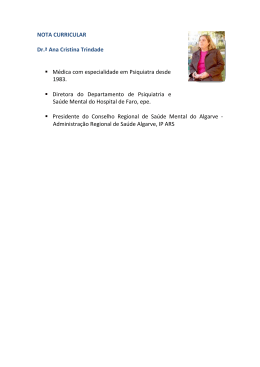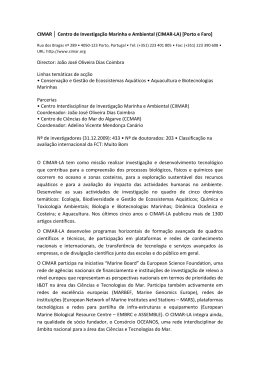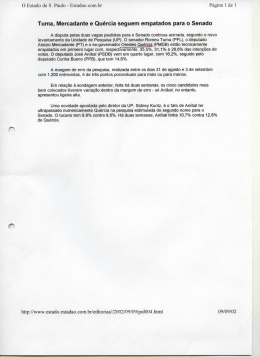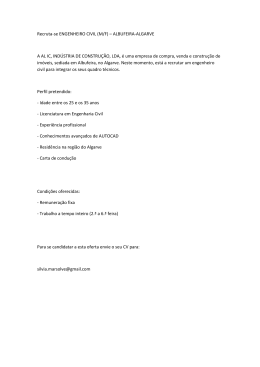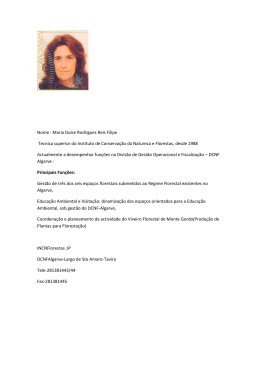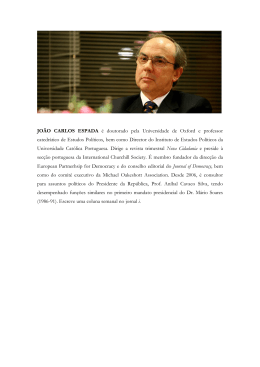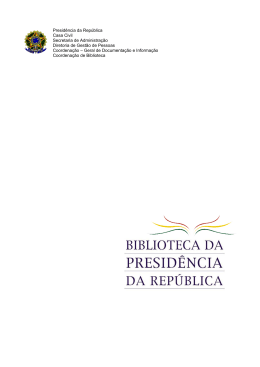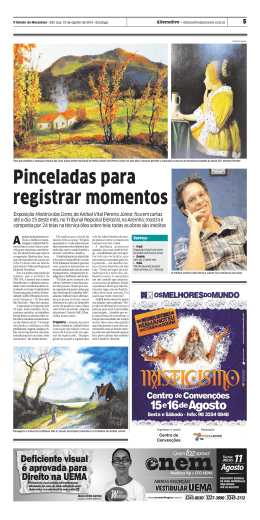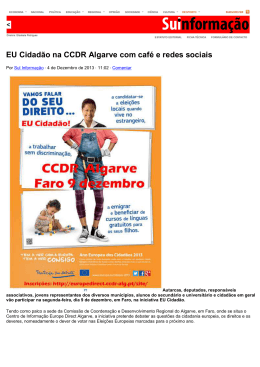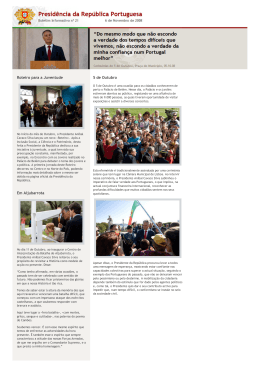Jaime Aníbal Birth place and date: 30th April 1972 Nationality: Portuguese Jaime Aníbal studied Marine Biology and Fisheries (1990-1995) at the University of Algarve (Portugal), winning the Best Student Award. He went on to obtain his MSc in Ecology from the University of Coimbra (1999) and PhD in Ecology at University of Algarve (2004). Since 1999, Jaime has lectured Biochemistry, Food Chemistry, Enzymology, Seafood Quality and other chemistry-related courses in the Food Engineering Department at the Institute of Engineering (University of Algarve). Jaime is a member of the Scientific Commission of CIMA-Centre for Marine and Environmental Research at the University of Algarve. At present, his research deals with the effects of environmental changes related with nitrogen biogeochemical cycle on the management of marine food resources, with emphasis on: [1] assessment of primary production based on enzymes related to nitrogen metabolism (e.g. nitrate reductase); [2] contribution of nitrogen cycle pathways to the production of marine food resources, at different trophic levels (e.g. crustaceans, bivalves, fishes), using stable isotopes ratios (e.g. δ15N); [3] evaluation of seafood quality through nitrogen compounds spoilage (e.g. formation of biogenic amines). He is also a member of the Direction of DECO-Algarve Delegation (Portuguese consumer protection association), responsible for coordinating the issues related to food quality and environmental protection. When Jaime is not in the lab, he can be found walking in nature with his family, or climbing distant mountains. Keywords: Food chemistry; seafood quality; enzymology; biogeochemistry; marine ecology Publications Aníbal, J.; Rocha, C. & M. Sprung (2007). Mudflat surface morphology as a structuring agent of algae and associated macroepifauna communities: a case study in Ria Formosa. Journal of Sea Research 57: 36-46. Schories, D.; Aníbal, J.; Chapman, A. S.; Herre, E.; Isaksson, I.; Lillebo, A. I.; Pihl, L.; Reise, K.; Sprung, M. & M. Thiel (2000). Flagging greens: hydrobiid snails as substrata for the development of green algal mats (Enteromorpha spp.) on tidal flats of North Atlantic coasts. Marine Ecology Progress Series 199: 127-136. Aníbal, J.; Esteves, E.; Krug, H. M. & H. M. Silva (1998). Age and growth of the Alfonsino, Beryx splendens, from the Azores (central eastern Atlantic). Italian Journal of Zoology 65(Suppl.): 215-218. Esteves, E.; Aníbal, J.; Krug, H. M. & H. M. Silva (1997). Aspects of age and growth of bluemouth, Helicolenus dactylopterus dactylopterus (Delaroche, 1809), from the Azores. Arquipélago, Life and Marine Sciences 15A: 83-95. Monteiro, C.; Lança, M.; Joaquim, N.; Lamy, I.; Aníbal, J.; Coucelo, J. M.; Coucelo, J.; Azevedo, J. & M. Bicho (1997). Polimorfismo genético da haptoglobina e grau de gravidade da hipertensão arterial essencial. Revista Portuguesa de Cardiologia 16(1): 81-84. Jaime Aníbal Local e data de nascimento: 30 de Abril de 1972 Nacionalidade: Portuguesa Jaime Aníbal licenciou-se em Biologia Marinha e Pescas (1990-1995) na Universidade do Algarve (Portugal), tendo ganho o Prémio de Melhor Aluno. Ele continuou os seus estudos realizando o Mestrado em Ecologia na Universidade de Coimbra (1999) e o Doutoramento em Ecologia na Universidade do Algarve (2004). Desde 1999, Jaime leccionou Bioquímica e Química de Alimentos, Enzimologia, Qualidade dos Produtos da Pesca e Aquicultura e outras unidades curriculares do grupo disciplinar de Química, no Departamento de Engenharia Alimentar do Instituto Superior de Engenharia (Universidade do Algarve). Jaime é membro da Comissão Científica do CIMA-Centro de Investigação Marinha e Ambiental da Universidade do Algarve. Presentemente, a sua linha de investigação foca-se nos efeitos das alterações ambientais relacionadas com o ciclo biogeoquímico do azoto sobre a gestão dos recursos alimentares marinhos, com ênfase em: [1] avaliação da produção primária baseada nas enzimas relacionadas com o metabolismo do azoto (e.g nitrato redutase); [2] contribuição do ciclo do azoto para a produção de recursos alimentares marinhos, de diferentes níveis tróficos (e.g. crustáceos, bivalves, peixes), utilizando isótopos estáveis (e.g. δ15N); [3] avaliação da qualidade dos produtos da pesca através da deterioração dos compostos azotados (e.g. aminas biogénicas). Ele também é Membro da Direcção da Delegação Regional do Algarve da DECO – Associação Portuguesa para a Defesa do Consumidor, com funções de coordenação ao nível das acções de divulgação e sensibilização referentes às questões ambientais e alimentares do consumo. Quando não está no laboratório, o Jaime pode ser encontrado a caminhar pela natureza com a sua família, ou a escalar montanhas longínquas. Palavras-chave: Química de Alimentos; qualidade do pescado; enzimologia; biogeoquímicas; ecologia marinha Publicações Aníbal, J.; Rocha, C. & M. Sprung (2007). Mudflat surface morphology as a structuring agent of algae and associated macroepifauna communities: a case study in Ria Formosa. Journal of Sea Research 57: 36-46. Schories, D.; Aníbal, J.; Chapman, A. S.; Herre, E.; Isaksson, I.; Lillebo, A. I.; Pihl, L.; Reise, K.; Sprung, M. & M. Thiel (2000). Flagging greens: hydrobiid snails as substrata for the development of green algal mats (Enteromorpha spp.) on tidal flats of North Atlantic coasts. Marine Ecology Progress Series 199: 127-136. Aníbal, J.; Esteves, E.; Krug, H. M. & H. M. Silva (1998). Age and growth of the Alfonsino, Beryx splendens, from the Azores (central eastern Atlantic). Italian Journal of Zoology 65(Suppl.): 215-218. Esteves, E.; Aníbal, J.; Krug, H. M. & H. M. Silva (1997). Aspects of age and growth of bluemouth, Helicolenus dactylopterus dactylopterus (Delaroche, 1809), from the Azores. Arquipélago, Life and Marine Sciences 15A: 83-95. Monteiro, C.; Lança, M.; Joaquim, N.; Lamy, I.; Aníbal, J.; Coucelo, J. M.; Coucelo, J.; Azevedo, J. & M. Bicho (1997). Polimorfismo genético da haptoglobina e grau de gravidade da hipertensão arterial essencial. Revista Portuguesa de Cardiologia 16(1): 81-84.
Download
